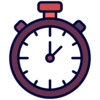Psychometric & IQ Testing
Wechsler IQ Tests and Scales
2.5 years and above
Ψ Wechsler Preschool and Primary Scale of Intelligence (WPPSI)
Ψ Wechsler Intelligence Scale for Children (WISC)
Ψ Wechsler Intelligence Scale for Adults (WAIS)
Ψ Wechsler Abbreviated Scale of Intelligence (WASI-II)
Ψ Wechsler Individual Achievement Test (WIAT-III)
Other Intelligence/ Achievement
Tests and Scales
2 years and above
Ψ Comprehensive Test of Nonverbal Intelligence (CTONI-2)
Ψ Differential Ability Scales (DAS-II)
Ψ Stanford-Binet Intelligence Scales, Fifth Edition (SB-V)
Ψ Test of Nonverbal Intelligence Fourth Edition (TONI-4)
Ψ Wide Range Achievement Test (WRAT-4)Back to Therapy Notes
Developmental Assessments
1 ~ 42 months
Ψ Bayley Scales of Infant & Toddler Development (Bayley-III)
Tests for Developmental Sub-Domains
2 years and above
Ψ Beery-Buktenica Developmental Test of Visual-Motor Integration (BEERY VMI)
Ψ Comprehensive Test of Phonological Processing (CTOPP-2)
Ψ Phonological Assessment Battery (PhAB2)
Tests for Adaptive Skills & Behaviours
1 month and above
Ψ Adaptive Behaviour Assessment System (ABAS-3)
Ψ Behaviour Assessment System of Children (BASC-3)
Ψ Vineland Adaptive Behaviour Scales (Vineland-3)
Tests for Autism
12 months and above
Ψ Autism Diagnostic Observation Schedule (ADOS-2)
Ψ Social Responsiveness Scale (SRS-2)
Ψ Autism Diagnostic Interview-Revised (ADI-R)* (screening)
Tests for ADHD
6 years and above
Ψ Conners 3rd Edition
Understanding Your Child’s Early Development (Bayley-III)
Wondering whether your child is developing normally in early childhood?
The Bayley Scales of Infant and Toddler Development 3rd edition (Bayley-III) assesses development in 5 domains:
Ψ Adaptive Behaviour Scales: measure functional skills in areas of conceptual, social and practical abilities
Ψ Cognitive scales: evaluating play skills, information processing, memory and habituation skills, and reasoning abilities
Ψ Language scales: assess receptive and expressive language;
Ψ Receptive language: comprehending and responding to requests, and to discriminate between sounds in environment
Ψ Expressive language: naming objects and actions, communicate wants, respond to questions, and use multi-word sentences
Ψ Motor scales: evaluate both fine and gross motor skills
Ψ Social-Emotional Functioning Scales: evaluate mastery of functional emotional skills, like self-regulation, socialisation, and ability to use emotional gestures to communicate
The child will take cognitive, language and motor scales, while the caregiver will take the social-emotional functioning and adaptive behavioural scales.
The Bayley-III’s uses lie in measuring a child’s early developmental progress, identifying issues and planning intervention. The cognitive and language scales are useful for an early diagnosis of learning disorder and can also differentiate more severe forms of learning disorders. The scores from each subtest can help in differential diagnosis of developmental disorders and identify the specific issues of concern.
However, the main purpose of the Bayley-III is to identify developmental delays. If official diagnoses are required, we recommend using this scale in tandem with other scales (depending on individual’s needs), such as the Wechsler Intelligence Scale for Children, Comprehensive Test of Phonological Processing (CTOPP-2) and other relevant assessments.



